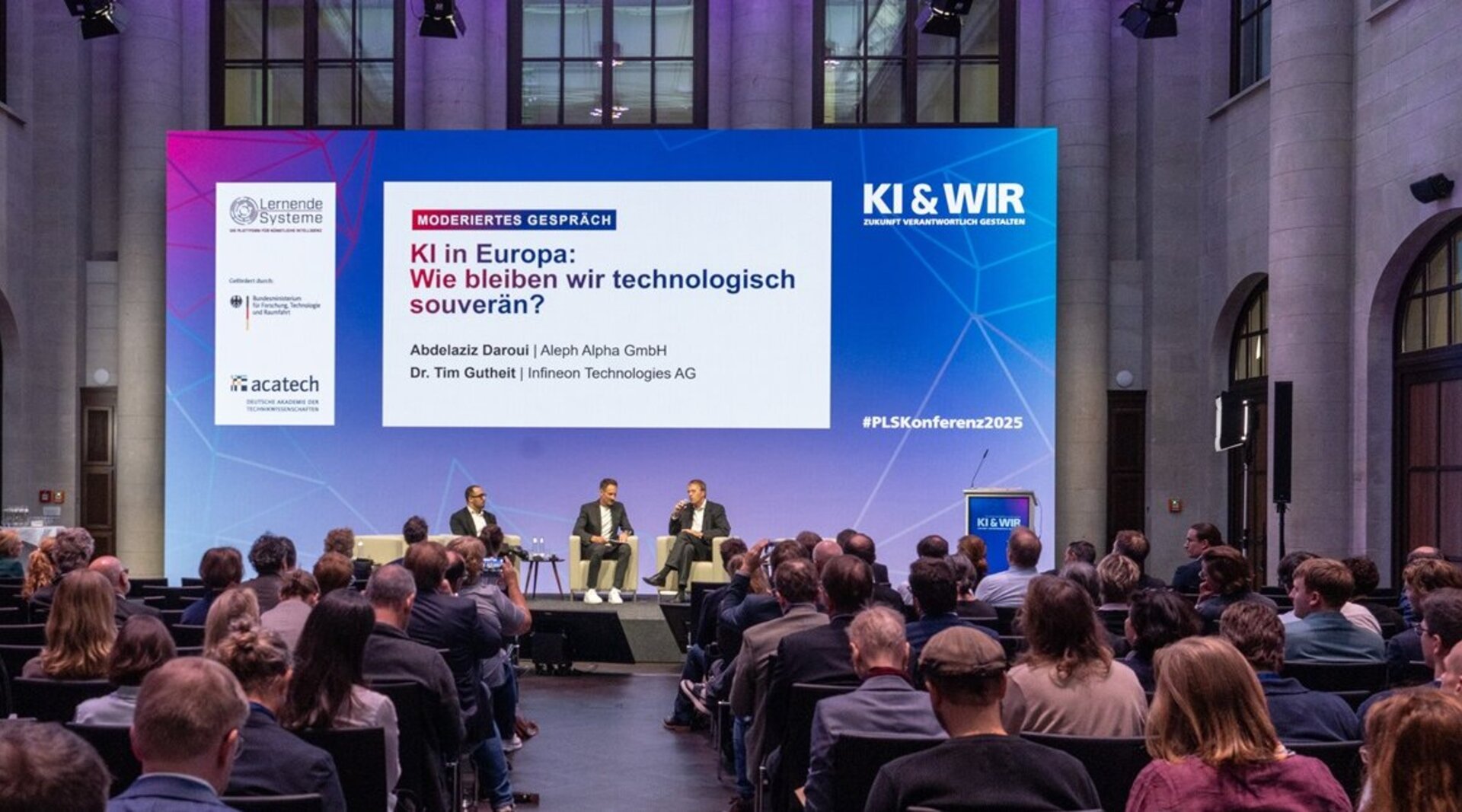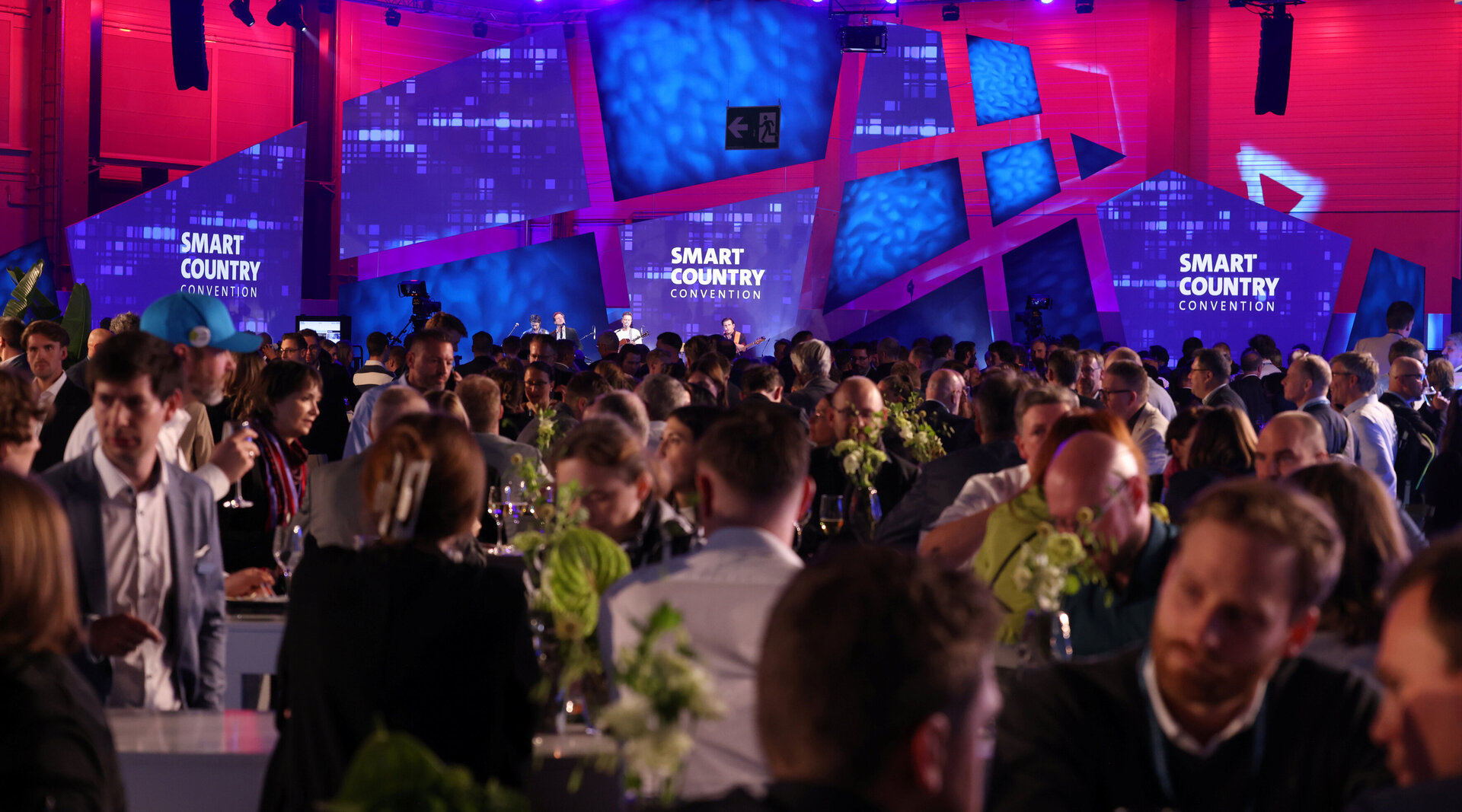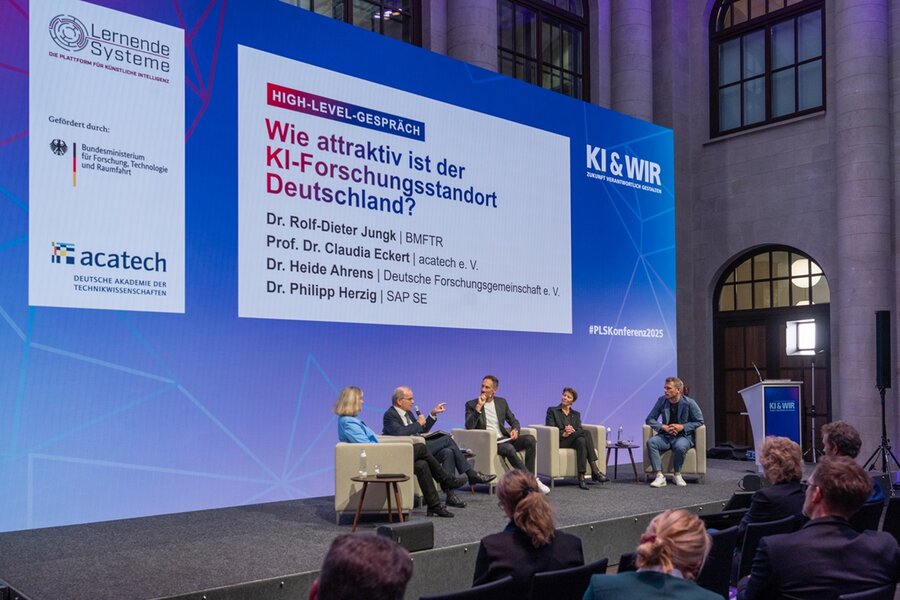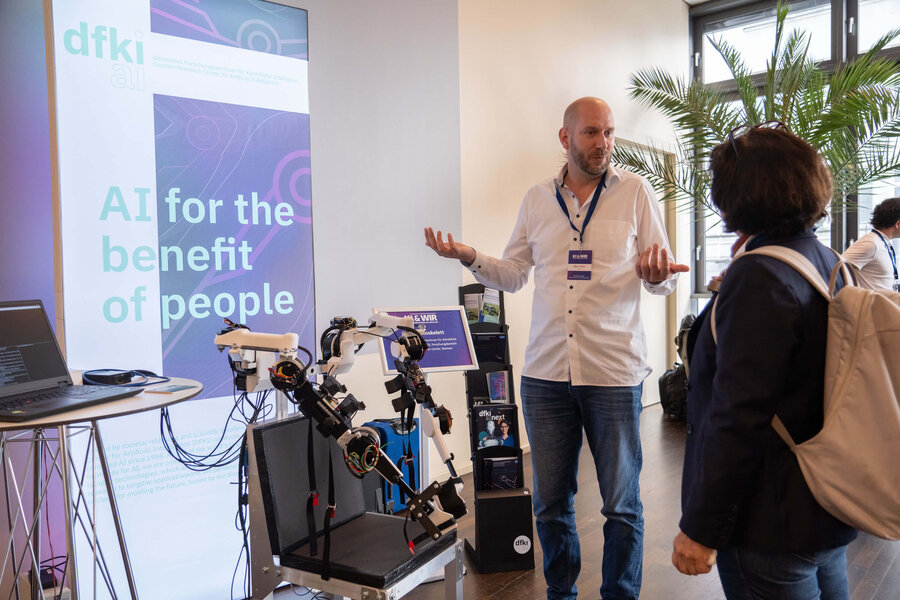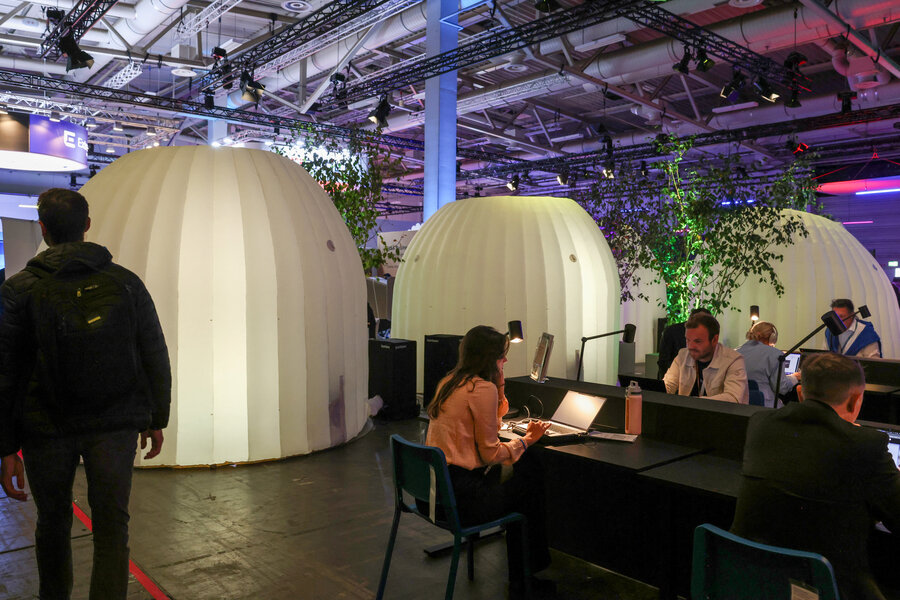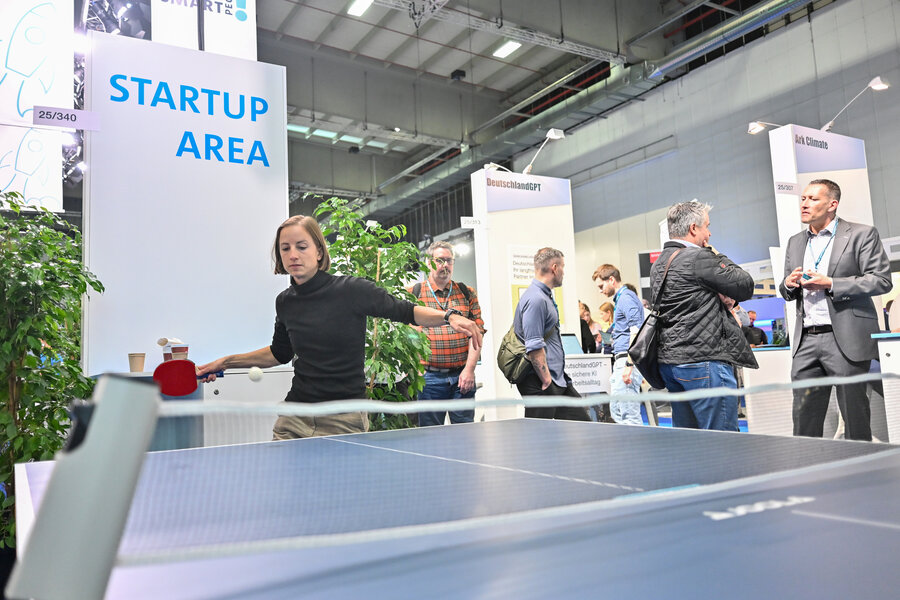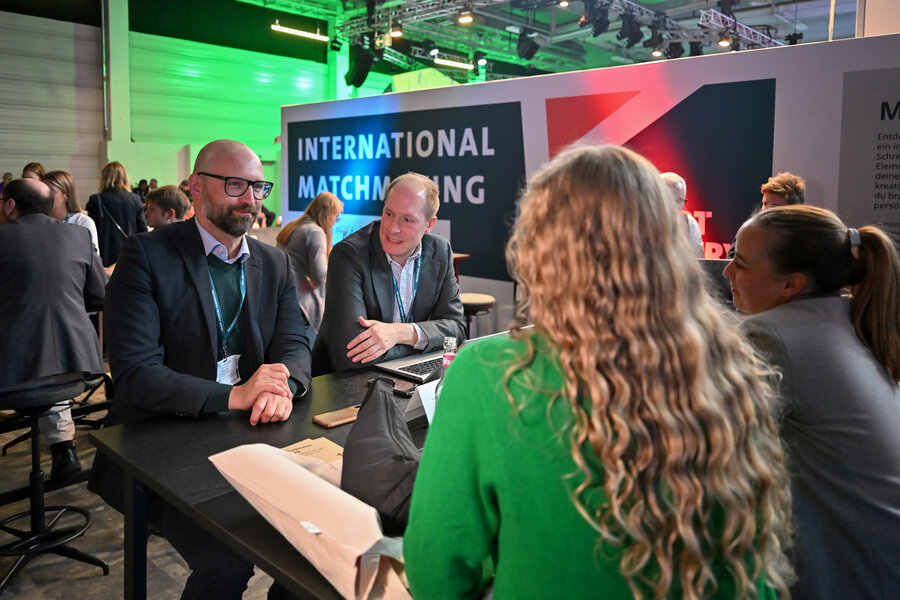Shaping the Future: Germany’s AI Journey in 2025
How the KI & WIR Conference and SCCON highlighted progress, challenges, and digital pioneers
In the beginning of October, the KI-Garage Team attended two major AI events in Berlin: the KI & WIR conference of the Plattform Lernende Systeme on 30 September 2025, and the Smart Country Convention from 30 September to 2 October 2025. These gatherings offered a window into how Germany is navigating the challenges and opportunities of AI.
At the KI & WIR event in Berlin, experts from science, business, politics and society convened to present the latest developments in AI, to debate ethical frameworks, and to explore how research could better translate into practice. The Plattform Lernende Systeme, which has acted since 2017 as a bridge between domains to promote socially responsible AI, used the conference to underscore that domain-specific AI, trustworthiness, and data governance would be essential for Germany’s next steps.
A central takeaway was the urgent call for stronger transfer from research to market. As Dr. Rolf-Dieter Jungk, State Secretary at the Federal Ministry of Research, Technology and Space, stressed: “We must ensure that product development and market success gain more relevance for researchers’ careers than they do today.” Similarly, Prof. Dr. habil. Claudia Eckert, President of acatech, emphasized: “The transfer mindset must become more firmly embedded in research culture.” These voices highlighted a gap that is directly aligned with the mission of the KI-Garage: making sure that groundbreaking AI research does not remain in the lab, but reaches industry, startups, and society at large.
Almost simultaneously, the Smart Country Convention (SCCON) unfolded over three days (30 September – 2 October 2025). With more than 18,000 participants, hundreds of speakers and exhibitors, the convention placed AI applications for the public sector center stage. Use cases ranged from intelligent cloud solutions in administration, digital twins, AI-driven citizen services, to predictive models in procurement processes. The event also hosted the Smart Country Startup Award on 1 October, where startups applied AI to public sector challenges — the winner GovIntel was recognized for its data-driven intelligence in public procurement. Another highlight was the panel about the Smart City Index (https://www.bitkom.org/Smart-City-Index), where Heidelberg and Stuttgart were both ranked among the Top 10 digital cities in Germany, showcasing Baden-Württemberg’s strong position in urban innovation and digital transformation.
Together, the two events painted a vivid picture: Germany’s AI discourse is maturing. The community had moved beyond abstract visions to real deployment, especially in the public sector. At the same time, key obstacles became more visible: access to high-quality data, AI Sovereighnity, interoperability, regulatory clarity (e.g. alignment with the EU AI Act), talent shortages, and building public trust.
For Germany to make “AI made in Germany” a meaningful label the path ahead must strengthen infrastructure, incentivize data sharing under secure frameworks, and further focus on and improve the transfer of research into scalable applications. The KI-Garage remains committed to building a strong AI Landscape in BW and support science in transfer to application.
9. October 2025, Carolin Bishop

